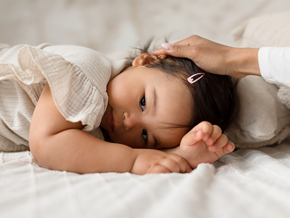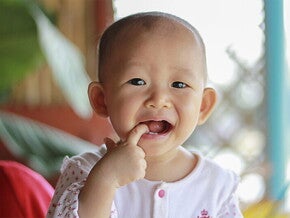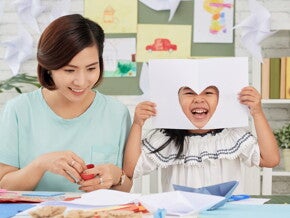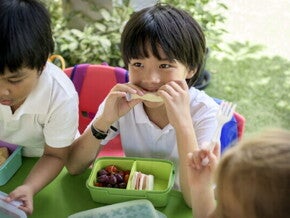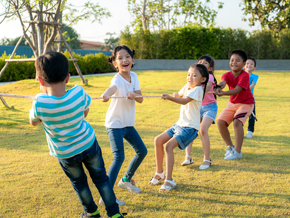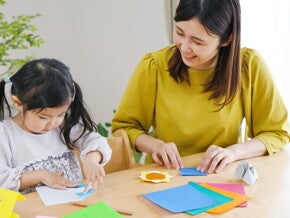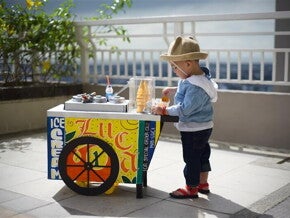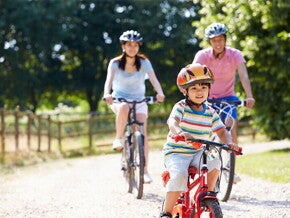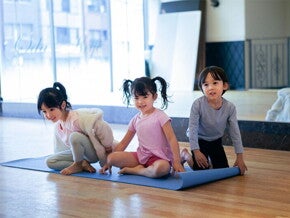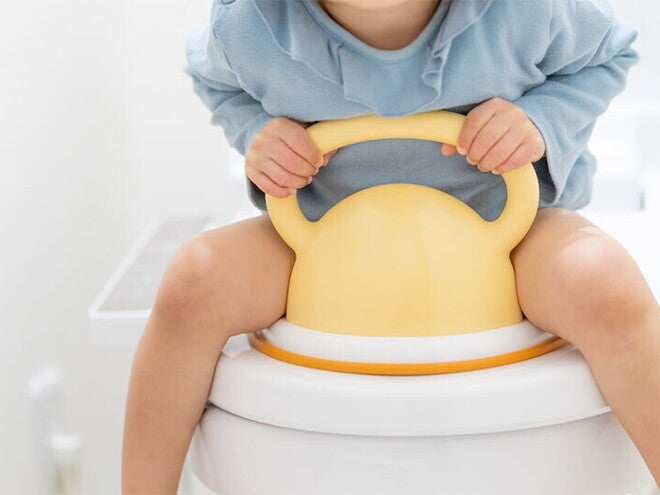
A Parent's Guide to Baby Diarrhea From Watery Stool to Dehydration
Dealing with baby diarrhea can be a worrying experience for any parent. It's one of the top reasons families visit the doctor or even head to the hospital. And you're right to be worried.
Frequent watery stools can quickly lead to dehydration, a condition that is particularly dangerous for young children. According to the World Health Organization (WHO), diarrhea is also the leading cause of malnutrition in children under the age of 5.
Timely treatment can prevent diarrhea from worsening. More importantly, it is also preventable. Continue reading to learn how to keep your child's health protected.
Possible Causes of Diarrhea in Babies
There are two main reasons children develop diarrhea: infections caused by viruses, bacteria, or parasites, and non-infectious causes such as reactions to medication or food.
Infections
Most cases of diarrhea are caused by an intestinal tract infection. Kids can catch it by eating unsafe food, drinking contaminated water, or failing to wash their hands properly. Viral gastroenteritis, which causes diarrhea, is one of the most common diseases your child can get in school.
Common infection-related causes include:
- Viruses. Rotavirus is the most common cause of watery stools in babies.
- Bacteria. Salmonella and E. coli can cause diarrhea, often resulting from the consumption of contaminated food or water.
- Parasites. For example, a child who drinks untreated or contaminated water can contract a parasite called Giardia, which results in watery diarrhea.
Non-infectious causes
Not all diarrhea is caused by infection. Some children experience watery stools due to their body's reaction to certain foods or medications, such as antibiotics.
Diarrhea may also be due to an underlying condition. For instance, it's a symptom of cystic fibrosis, a genetic condition that changes a protein in the body.
Symptoms of Diarrhea in Babies
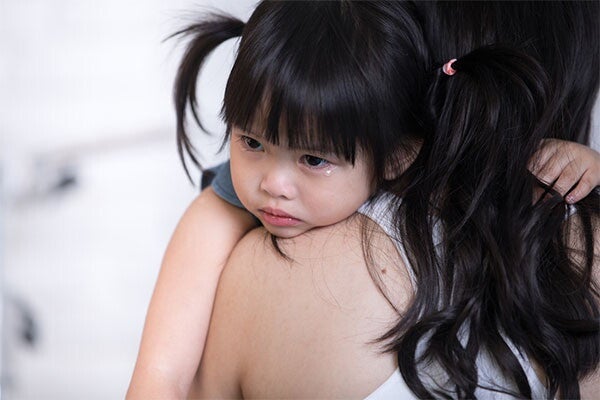
Babies can lose fluids fast, and early treatment can prevent more serious problems.
WHO states that a baby has diarrhea if their stools have changed from their usual pattern. For example, in addition to more-than-usual trips to the bathroom, what's the poop consistency? Softer stools don't always mean diarrhea, especially if it's a breastfed baby whose stool is often softer or pasty.
The clearest sign of diarrhea in babies is having three or more loose or watery bowel movements in a single day, lasting less than 14 days.
The Philippine Society for Microbiology and Infectious Diseases (PSMID) adds that children with diarrhea may also be accompanied by the following symptoms:
- Nausea
- Vomiting
- Abdominal pain
- Fever
Your child may also become fussy, cranky, or uncomfortable because of tummy problems.
Signs of Dehydration in Children
Diarrhea causes young kids to lose fluids quickly, and it can lead to serious health complications when ignored or left untreated. Here's a list of signs of dehydration in children from PSMID:
Mild to moderate dehydration (needs prompt care)
Dehydration is considered mild if your child shows two or more of the following signs:
- Restlessness or irritability
- Thirsty and drinks eagerly
- Slightly sunken eyes or soft spot (fontanel)
- Fewer tears or no tears when crying
- Skin pinch goes back slowly
- Slower urine output
- Slightly faster breathing
Severe dehydration (needs urgent medical attention)
If your child shows two or more of these signs, it could mean they’re getting seriously dehydrated.
- Lethargy, weakness, or unconsciousness
- Drinks poorly or is unable to drink
- Deeply sunken eyes or fontanel
- No tears when crying
- Very slow skin pinch return
- Little to no urine output
- Deep and rapid breathing
While most cases of baby diarrhea improve with home care, call your pediatrician immediately or visit the nearest hospital if you notice signs of severe dehydration.
Baby Diarrhea Treatment
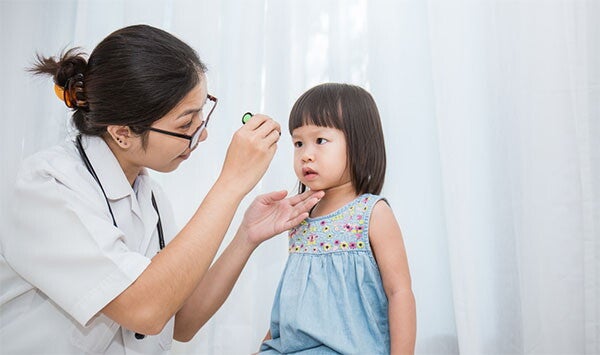
Pediatricians may prescribe zinc for baby diarrhea, not really antibiotics.
Your baby's diarrhea needs to be managed properly to prevent dehydration. Treatment depends on your child's age, symptoms, and overall condition, so always follow your pediatrician’s advice.
Children under 3 years old, especially, always need close medical supervision when they have diarrhea.
Here are a few things your child's pediatrician may prescribe, according to PSMID and the Philippine Society for Pediatric Gastroenterology, Hepatology, and Nutrition (PSPGHAN).
Rehydration
Most of the time, doctors focus on replacing lost fluids, so they may require your child to take oral rehydration solutions (ORS) to replenish their body.
Pediatricians discourage giving children sugary, sweetened, or sports drinks during bouts of diarrhea, as these lack the proper balance of electrolytes. Only use electrolyte drinks if they are specifically prescribed for your child.
Zinc supplementation
In a ParenTeam article on childhood diarrhea, Dr. Marilou Tan, FPPS, DPSPGHAN, says that zinc supplements, which can be administered in drop or syrup form, may help shorten the duration of diarrhea and make it less severe.
Zinc can also lower the chances of having another diarrhea episode for up to three months after taking the supplements. However, Dr. Tan adds, using medications like anti-diarrheal drugs and antibiotics should not be "routinely used" for treating diarrhea in children.
Probiotics
Dr. Tan says research has shown that certain probiotic strains can help reduce the number of diarrhea episodes in children. She cites a specific type of probiotic, Lactobacillus reuteri, which has been found to reduce the duration of diarrhea and decrease the frequency of watery stools in children.
PSPGHAN and PSMID add that other probiotics with beneficial effects include Saccharomyces boulardii and Lactobacillus rhamnosus. Keep in mind that, apart from the strains, probiotics require specific amounts to be effective, so it's essential to use them as prescribed.
Never administer over-the-counter baby diarrhea medicine without your pediatrician’s approval. Many drugs that work for adults are not safe for children.
How to Prevent Baby Diarrhea
Lower your child’s risk of diarrhea with these simple yet essential habits at home, as recommended by PSMID and PSPGHAN.
1. Give only clean and safe drinking water.
Make sure your child drinks boiled, filtered, or bottled water, especially in areas where tap water may not be safe.
2. Wash and cook food properly.
Always wash raw fruits and vegetables thoroughly and cook food to a safe temperature. Store leftovers safely in the refrigerator to avoid contamination.
3. Practice good hand hygiene.
Handwashing is one of the easiest ways to prevent the spread of germs that cause diarrhea. Wash your hands regularly, especially after using the toilet, after changing diapers, and before preparing or handling food.
Liquid soap and running water are best, but any soap is better than none. Dry your hands well after washing. If soap and water aren’t available, use an alcohol-based hand sanitizer with at least 60% alcohol.
4. Keep the toilet clean.
Regularly clean the toilet, paying special attention to the handle and lid. Always flush with the lid down to help prevent the spread of germs.
5. Dispose of stool safely.
Make sure your baby’s poop is thrown away correctly and safely, especially when you’re outside your home.
6. Keep your baby’s vaccines up to date.
Vaccines, especially for rotavirus and measles, can protect babies from some of the most common causes of diarrhea.
With proper care, most babies recover from diarrhea without complications. But it can quickly become serious if not managed properly. Always keep an eye out for dehydration and consult your pediatrician if symptoms persist or seem severe. With good hygiene and healthy habits, you can reduce the chances of baby diarrhea recurring.
Let's talk pooping issues on the ParenTeam Moms and Dads Facebook group!
References
HealthyChildren.org. “Diarrhea in Children: What Parents Need to Know.” Accessed July 27, 2025. https://www.healthychildren.org/English/health-issues/conditions/abdominal/Pages/Diarrhea.aspx
“Diarrhea in Infants: MedlinePlus Medical Encyclopedia.” Accessed July 27, 2025. https://medlineplus.gov/ency/patientinstructions/000691.htm
HealthyChildren.org. “Symptomviewer.” Accessed July 27, 2025. https://www.healthychildren.org/English/tips-tools/symptom-checker/Pages/symptomviewer.aspx?symptom=Diarrhea
Ulep, Valerie Gilbert, Jann Trizia Talamayan, Lyle Daryll Casas, Jon Michael Villaseñor, and Elmira Bacatan. “The Last-Mile Challenge: Water, Sanitation, and Hygiene (WASH) in the Philippines.” PIDS. Philippine Institute for Development Studies, November 20, 2024. https://doi.org/10.62986/dp2024.19










